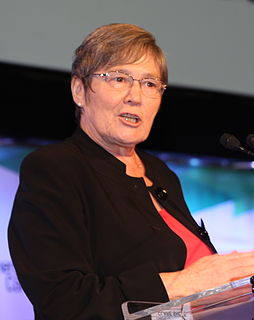A Quote by Antonio Guterres
As a global community, we face a choice. Do we want migration to be a source of prosperity and international solidarity, or a byword for inhumanity and social friction?
Related Quotes
...we must face the fact that unilateral action on the part of the United States will never be enough to stop illegal immigration. Immigrants come here illegally from source countries where conditions prevail that encourage or even compel them to leave. Attacking the causes of illegal migration is essential and will require international cooperation.
In a world of serious threats to the U.K. and to global stability, where we see violence and conflict pulling people back into poverty, international terrorism, migration crises, children dying from preventable diseases and global environmental concerns on the rise, Britain's leadership on the world stage is more important than ever.
Globalization not only has lost its promise but it is embittering many. The forces representing human solidarity and community have no choice but to step in quickly to convince the disenchanted masses that, indeed, as the banner of World Social Forum in Porto Alegre proclaims, “Another world is possible.”
The United States is strongly committed to the IPCC process of international cooperation on global climate change. We consider it vital that the community of nations be drawn together in an orderly, disciplined, rational way to review the history of our global environment, to assess the potential for future climate change, and to develop effective programs. The state of the science, the social and economic impacts, and the appropriate strategies all are crucial components to a global resolution. The stakes here are very high; the consequences, very significant.
The United Nations remains the sole universal international organisation designed to maintain global peace. And in this sense it has no alternative today. It is also apparent that it should adapt to the ever-changing world, which we discuss all the time: how it should evolve and at what rate, which components should undergo qualitative changes. Of course, I will have to or rather should use this international platform to explain Russia's vision of today's international relations, as well as the future of this organisation and the global community.
The truth is that all civic and social change is friction. Politics is friction. The only way you can bend the arc of history is to create that kind of friction, which is something that makes most people incredibly uncomfortable but which, for whatever reason, because of my upbringing or because of my genetics, is something that doesn't bug me.


































